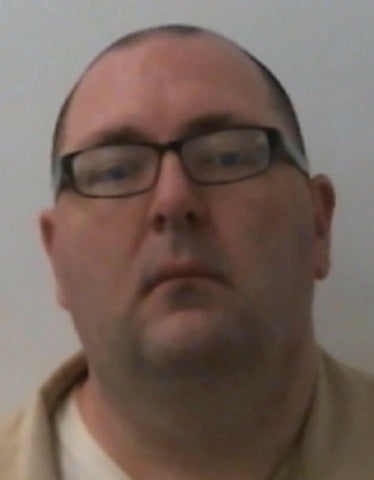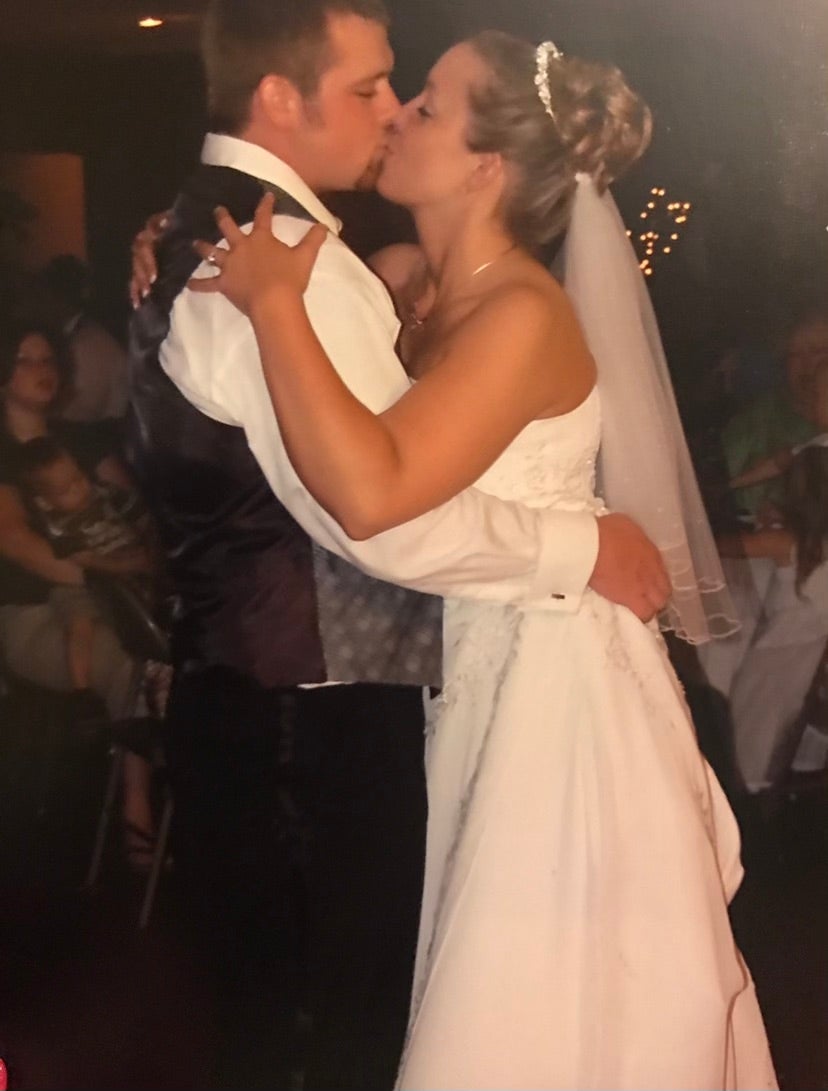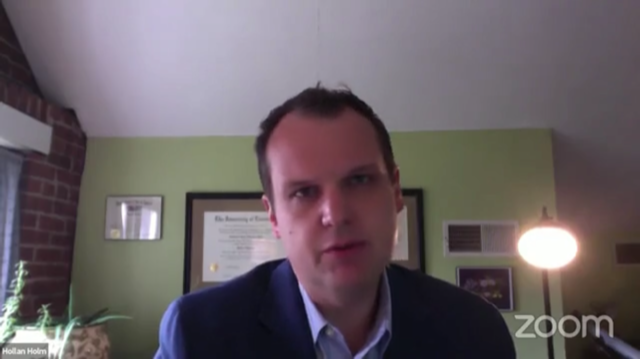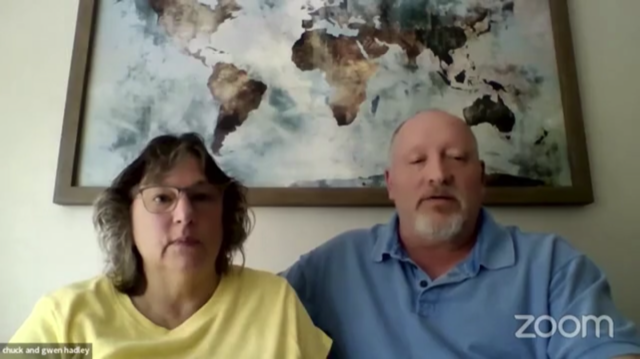Michael Carneal: Paralysed school shooting victim hits out at parole board for indecision on gunman’s release
Missy Jenkins Smith was paralyzed from the chest down in 1997 when Michael Carneal attacked their school
A victim who has been paralyzed for more than half of her life after a fellow student shot her in a 1997 school massacre has criticised authorities for not immediately refusing him parole after hearings this week.
MIchael Carneal, 39, spoke on Tuesday before two members of the Kentucky State Parole Board. He’s been serving a life sentence for fatally shooting three Heath High School classmates in West Paducah, Kentucky and injuring five others when he was 14.
Missy Jenkins Smith, 40, was one of the injured. Seated in her wheelchair, she gave emotional victim testimony via video before the board members one day ahead of Carneal’s own appearance. He told the board that he was on three psychiatric medications but still hears voices and does not “pay attention” to his specific diagnoses.
Watching his testimony, Ms Jenkins Smith was unswayed by his plea and shared in a Facebook post on Tuesday that she didn’t “think things went well for Michael today.”
“I was surprised the board couldn’t come to a unanimous decision, but I trust that the full board will do the right thing next week. I didn’t see any evidence that he’s any better today, 25 years later, or that he put much effort into preparing for this hearing, and I think the board saw that too,” she wrote. “From my view, he’s functioning and safe in prison, and so are we out here. Let’s keep it that way.”

Ladeidra N. Jones, chairperson of the board, pointed out during Carneal’s testimony that parole authorities had received letters from his legal counsel and family, but nothing from the inmate himself. When asked why on Tuesday, he said he thought everything had been covered in the information sent by others.
Ms Jones pointed out that his mental health prognosis remained “poor” after decades of treatment and that he continued to experience “paranoid thoughts with violent visual imagery.”
Carneal admitted this and told the board that while he still hears voices, he has learned to control his actions and seek help. He appeared nervous and fidgety during the hour-long interview with Ms Jones and her fellow board member Larry Brock.
Ms Jones and fellow board member Larry Brock heard Carneal’s testimony but were unable to come to a unanimous decision on parole. The case will be heard by the full parole board on Monday.

Carneal told the board on Tuesday that, at 14, he knew right from wrong but blamed the massacre on a “combination of factors.”
“I was hearing things, and I was extremely hyper suspicious,” he told the board. “And I had felt for years, feeling alienated and different, and I think that when I startd to develop mental health problems, that it fed into that - and it kind of ... it made my mental health problems worse, that I spent those years feeling like that.”
He told the board: “I was 14 at the time, and I had not experienced anything in life, really. I didn’t know exactly the effect of what I would do.”
Carneal fatally shot Nicole Hadley, 14; Jessica James, 17; and Kayce Steger, 15. Ms Jenkins Smith, one of the five injured, had considered Carneal to be a friend and knew him reasonably well, though she told the board that he should remain in prison.
“I want you to consider how long it’s been that he’s been taken care of by others,” Missy, now a married mother of two, told the board. “From the age of 14 years old to his present age of 39, he hasn’t had the responsibility to take care of himself and has been cared for for the past 25 years.
“How could anyone say with confidence he could do that for the rest of his life?” she asked, before adding: “There are too many ‘What ifs” – to assume that he would be responsible enough to take care of himself and to not let his mental illness cause him to harm anyone again? Continuing his life in prison is the only way his victims can feel comfortable and safe without being haunted.”

Also on Tuesday, Carneal told the board that his sister and parents, with whom he would initially live upon any release, were supportive and had promised to take him to any doctor appointments. He said that he was on three psych meds and would continue care on the outside if released.
“I think I can do a lot of good out there,” said Carneal, adding that he would be satisfied with a job in fast food or sanitation or anything, really. “I think I could beenfit the community. I think I could benefit people as a whole.”

One of his victims, Hollan Holm, who was shot in the head by Carneal and still bears the scar on his hairline, argued on Monday for his attacker’s release.
“I was still a child,” said Mr Holm, who was 14 at the time of the shooting and will turn 40 in December. “Everyone in the lobby of Heath High School that day, including Michael Carneal, was a child. It’s taken me 25 years to fully appreciate how little I knew on that day – how much of life I had not lived and how far from adult I was in my thinking and my capacity.”
Carneal went on to says he felt responsible for the plague of mass shootings that followed his actions. While he was not the first school shooter, Columbine followed shortly afterwards - in 1999 - and anchored the crimes as a national horror. Carneal said he became suicidal and was hospitalized when he heard the news.

The family of Nicole Hadley, who was fatally shot by Carneal, on Monday argued vehemently against his release.
“Not only did he kill Nicole, but he also killed Kayce and Jessice and tried to kill five more students,” Chuck Hadley told the parole board members. “I believe the murderer should never be let out of prison and should serve out the remainder of his life sentence.”
Gwen Hadley added that she “won’t get to see Nicole reach her goals, get married, have kids and be an aunt.”
“We as a family miss her at all family events. Nicole will always be missed,” she said.

